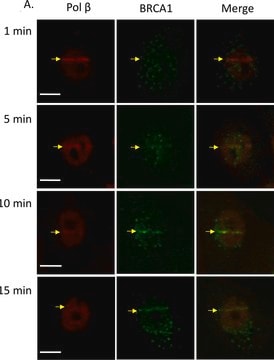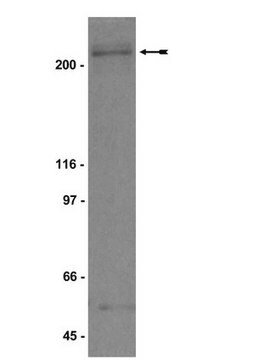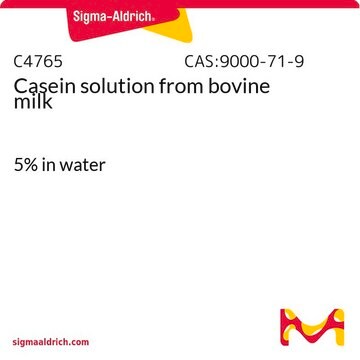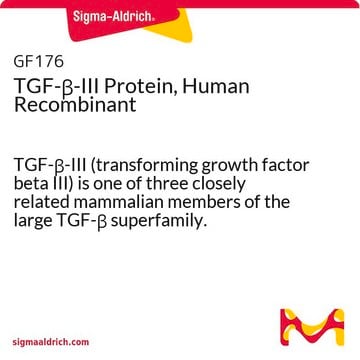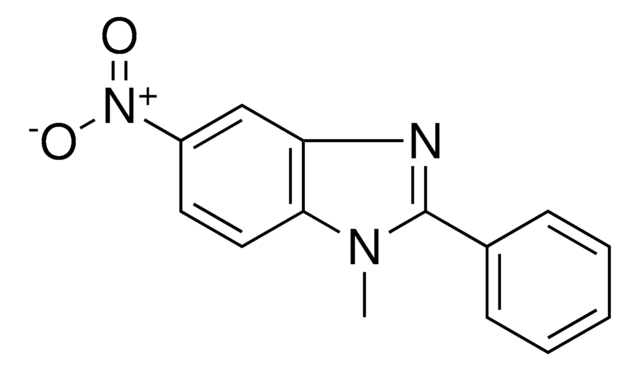14-912-M
TGFBR-1 Protein, active, 10 µg
Active, N-terminal GST-tagged, recombinant, human TGFBR1 amino acids 200–end containing a T204D mutation, expressed by baculovirus in Sf21 insect cells. Purified using glutathione agarose. For use in Kinase Assays.
Sinónimos:
TGF-beta receptor type-1, TGFR-1, Transforming growth factor-beta receptor type I, TGF-beta receptor type I, TbetaR-I, TGF-beta type I receptor, Serine/threonine-protein kinase receptor R4, SKR4, Activin receptor-like kinase 5, ALK-5
About This Item
Productos recomendados
biological source
human
Quality Level
recombinant
expressed in baculovirus infected Sf21 cells
mol wt
Mw 62 kDa
manufacturer/tradename
Upstate®
technique(s)
activity assay: suitable (kinase)
NCBI accession no.
UniProt accession no.
Gene Information
human ... TGFBR1(7046)
General description
Application
Inflammation & Immunology
Biochem/physiol Actions
Packaging
Quality
Physical form
Storage and Stability
Rapidly thaw the vial under cold water and immediately place on ice. Aliquot unused material into pre-chilled microcentrifuge tubes and immediately snap-freeze the vials in liquid nitrogen prior to re-storage at -70°C.
Other Notes
Legal Information
Disclaimer
Certificados de análisis (COA)
Busque Certificados de análisis (COA) introduciendo el número de lote del producto. Los números de lote se encuentran en la etiqueta del producto después de las palabras «Lot» o «Batch»
¿Ya tiene este producto?
Encuentre la documentación para los productos que ha comprado recientemente en la Biblioteca de documentos.
Nuestro equipo de científicos tiene experiencia en todas las áreas de investigación: Ciencias de la vida, Ciencia de los materiales, Síntesis química, Cromatografía, Analítica y muchas otras.
Póngase en contacto con el Servicio técnico